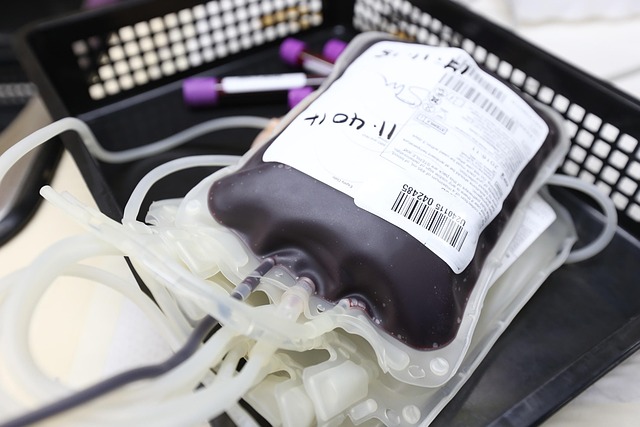The Standard Thyroid Blood Test UK commonly includes Vitamin D testing, crucial for overall health and bone strength. Deficiency can lead to conditions like rickets and osteomalacia, while optimal levels may protect against chronic diseases. Testing every 1-3 years (annually unless symptoms) is recommended, with ideal 25(OH)D levels around 70-100 nmol/L for bone health, though some experts suggest 50-70 nmol/L for immune function. Levels below 50 nmol/L indicate deficiency, prompting supplementation under healthcare guidance.
“Uncover the power of Vitamin D: your body’s key to overall wellness. This comprehensive guide delves into the significance of Vitamin D levels testing, particularly in the UK context where a Standard Thyroid Blood Test plays a pivotal role.
Learn why Vitamin D is essential for immune function, bone health, and more. Discover the simple process of vitamin D testing and gain insights on optimal testing frequency. By interpreting your results using the Standard Thyroid Blood Test UK, you can make informed decisions for a healthier you.”
- Understanding Vitamin D Levels: Why It Matters for Your Health
- Vitamin D Testing: What to Expect and How Often to Get Tested
- Interpreting Results: Standard Thyroid Blood Test UK Explained
Understanding Vitamin D Levels: Why It Matters for Your Health
Understanding Vitamin D Levels: Why It Matters for Your Health
Vitamin D levels play a crucial role in overall wellness, often referred to as the ‘sunshine vitamin’, it is essential for maintaining strong bones and teeth due to its involvement in calcium absorption. A standard Thyroid Blood Test UK typically includes measuring Vitamin D levels, as deficiency can lead to various health issues. This is because Vitamin D supports not only bone health but also contributes to immune system functionality, muscle strength, and mental well-being.
A lack of Vitamin D can result in conditions like rickets in children and osteomalacia in adults, characterized by soft bones and muscle weakness. Furthermore, recent research suggests that optimal Vitamin D levels may have protective effects against chronic diseases such as heart disease, diabetes, and certain types of cancer. Therefore, regular testing and maintaining adequate Vitamin D levels are essential components of preventive healthcare in the UK.
Vitamin D Testing: What to Expect and How Often to Get Tested
Vitamin D testing is a straightforward process that can provide valuable insights into your overall health and wellness. In the UK, it’s often included as part of a standard thyroid blood test, which measures the levels of vitamin D in your blood. This test typically involves taking a small sample of blood, usually from a vein in your arm, using a needle. The sample is then analysed in a laboratory to determine your vitamin D concentration.
The frequency of testing depends on various factors, including your lifestyle, diet, and risk factors for vitamin D deficiency. Generally, it’s recommended to get tested annually, especially if you have limited sun exposure or follow a vegetarian/vegan diet. However, if you’re experiencing symptoms like fatigue, muscle weakness, or bone pain, your healthcare provider might suggest more frequent testing to monitor and manage your vitamin D levels effectively.
Interpreting Results: Standard Thyroid Blood Test UK Explained
When interpreting your Vitamin D levels results from a Standard Thyroid Blood Test UK, it’s crucial to understand what each value signifies. The test measures 25-hydroxyvitamin D (25(OH)D), which indicates your body’s overall vitamin D stores. A result between 70 and 100 nmol/L is generally considered optimal for bone health. However, some experts suggest a range of 50-70 nmol/L for peak immune function.
If your levels fall below 50 nmol/L, it may indicate deficiency, which can lead to various health issues including bone weakness and an increased risk of certain diseases. In the UK, healthcare professionals often recommend vitamin D supplementation for individuals with deficient levels. It’s important to discuss your results with a healthcare provider who can advise on appropriate next steps based on your individual needs and overall health profile.
Testing your vitamin D levels is a crucial step in navigating overall wellness, especially with the Standard Thyroid Blood Test UK serving as a reliable guide. By understanding the importance of vitamin D and its role in maintaining health, you can make informed decisions to ensure optimal well-being. Regular testing, guided by medical advice, allows for proactive management of your health status, ensuring any potential deficiencies are addressed promptly.
